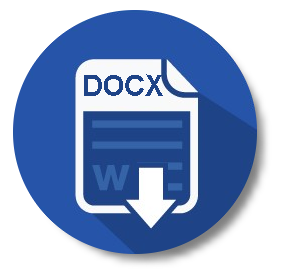Covid-19 and corporate tax avoidance: Measuring long-run tax burdens as an alternative bailout test
DOI:
https://doi.org/10.31685/kek.v4i3.888Keywords:
covid-19, tax avoidance measure, bailout test, long-run tax burdens, tax return, Post-Covid-19, coviAbstract
This study fills the gap in the tax authority’s Covid-19 financial aid verifications by examining, and nominating, Long-run ETR (Dyreng et al., 2008) as the better corporate tax avoidance measure in excluding tax evader firms from the broad stimulus programs. Analysing confidential tax returns of 4,752 largest firms (32,120 firm-years) in Indonesia over 2009 to 2017 periods, this study found 18.12 percent of total sample firms is able to retain its Long-run ETR below 10 percent, which indicates continual tax avoidance activities by these firms during observation periods. Moreover, applying univariate and multivariate Ordinary Least Squares and Panel Data estimations, this study reveals, relative to other tax avoidance measures, Lagged Cash ETR (Lisowsky, 2010; Lisowsky et al., 2013) present the most consistent reliability in predicting long-run income tax burdens. Thus, this study asserts, in the conditions of computing Long-run ETR is costly and impractical (i.e. because of data unavailability), tax authority and policymakers can directly analyse firms’ Lagged Cash ETR to gauge their long-run income tax burdens and tax compliance behaviours prior the economic downturn.Â
Downloads
Published
Issue
Section
License
Copyright (c) 2021 Kajian Ekonomi dan Keuangan

This work is licensed under a Creative Commons Attribution-NonCommercial-ShareAlike 4.0 International License.
STATEMENT OF AUTHENTICITY AND COPYRIGHT RELEASE
I hereby certify that:
- The article (Article title) is authentic and never being published previously or will be published in other publication as well as not a plagiarism in any form.
- The article does not have any issue with other parties, regarding of the publication copyright.
- All the authors have read this statement and agree with the name and sequence.
- Hereby, I transfer the copyright of my article (Article title) to the KEK Editorial Board . this copyright transfer includes a right to reproduce a photograph for the similar article and its translation. This is also including a right to upload the article into a computer system which disseminated widely on the internet.
- Hereby, I agree with my article (Article title) to be published by KEK Volume (xx) Edition (x), under Creative Common Attribution- NonCommercial-ShareAlike 4.0 licensing. This is also including a right to upload the article into a computer system which disseminated widely on the internet.
Name : (Full Name)
Date : (Signing date)



 (Profile on Google Scholar)
(Profile on Google Scholar)





